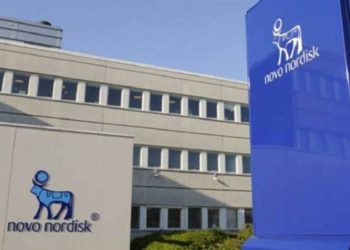A ground-breaking collaborative project, driven by Epilepsy Scotland, together with two pharmaceutical companies, to develop and improve epilepsy services for adults in Dumfries & Galloway, was today recognised at the Scottish Parliament.
The story of the transformation of care for epilepsy patients in the region, which includes the creation of specialist nursing posts and care plans for patients, has been documented in a report, “A Cross-Sector Joint Working Model to Evaluate and Improve Services for People with Epilepsy in the Dumfries & Galloway Health Board Area1, was unveiled at a reception in Holyrood.
The report which contains the findings and outcomes of the project was presented to MSPs, the Cross Party Group on Epilepsy, Health Care Professionals (HCPs) and the media. Guest speakers at the event included the Minister for Health Improvement in Scotland, Jamie Hepburn.
The project was enabled by a joint-working agreement between Epilepsy Scotland, NHS Dumfries & Galloway (NHS D&G), UCB and GlaxoSmithKline. Under the agreement, each partner contributed equally, either financially or in kind, to improve epilepsy services in the area through the appointment of a part-time Epilepsy Specialist Nurse (ESN), who was also qualified in learning disabilities. Over a three-year period, the ESN worked with consultants, nursing staff, GPs, Practice Nurses and other local healthcare professionals to provide advice and training, develop tools for epilepsy care and advise patients and carers.
The successful outcome of this initiative has resulted in the appointment of a permanent/full time ENS for the estimated 1,500 epilepsy patients in D&G as well as the part-time ENS, with both posts now funded by NHS D&G.
The NHS Dumfries & Galloway Health Board includes 34 practices, serving a population of 150,000. The catalyst for the project came in 2010, when the local patient support group, appealed for an epilepsy specialist nurse and expressed their concern over the non-existence of a permanent specialist neurologist in the region.
The audit work of the report which examined the treatment of 168 patients uncovered many areas for improvement in epilepsy services for patients including:
- 50% had no record of who had diagnosed their epilepsy
- 7% had no record of seizure classification
- 44% had no care plan
- Only 43% had been given advice regarding pregnancy
- Only 8% had received information regarding SUDEP (sudden death in epilepsy)
- Only 1% had been signposted to further support such as that offered by a patient group.
The project has gone on to deliver significant service improvements including:
- Accelerated access to medical treatment from a trained specialist epilepsy nurse (patients had previously to wait several months to access a visiting neurologist)
- Training in epilepsy for GP’s and practice nurses
- Hand held patient records
- Tool kits for training NHS staff
Patients assisted and encouraged to seek further help from patient support and other organisations to help manage their condition and get their lives back on track Medication and care plan reviews in accordance with national guidance.
Steve Turley, MD UCB BII said, “Our determination to make the project a success helped us overcome a number of challenges, not least of which was communicating with everyone so that we all worked together. Being the first of its kind within the UK, the business model for the project presented uncharted challenges for the companies – all driving towards the same goal, improving care. Critical to the success of the project was benchmarking and gathering feedback to maximise the benefits of the specialist nursing post.”
The project has created a role model for change for the better in epilepsy services in Scotland and has the potential to be used in other health areas.
Epilepsy is a chronic neurological condition affecting 1 in every 97 people in Scotland, meaning there are approximately 55,000 people living with this condition in the nation. Around 1 in 5 people with epilepsy also have a learning disability. This condition is characterised by transient bursts of abnormal electrical activity in the brain, known as seizures, which can lead to a wide range of temporary symptoms including loss of consciousness, involuntary muscle contractions, and mood changes. Not surprisingly, the unpredictable nature of seizures and the stigma often associated with epilepsy can have a major impact on all aspects of a person’s life, as well as the quality of life of family members and caregivers.
Epilepsy Scotland’s Chief Executive Lesslie Young said, “This novel collaboration between the public, private and voluntary sector sets a new benchmark in joint working for better healthcare and has led to a project that is unique in the UK. As this is an original model of cascading epilepsy expertise, the process has not been without its challenges. However, the end result of this cross-sector partnership, means hundreds of people will have a better quality of care and direct access to local epilepsy services.”


















